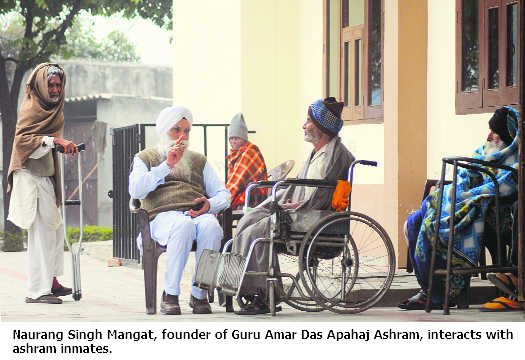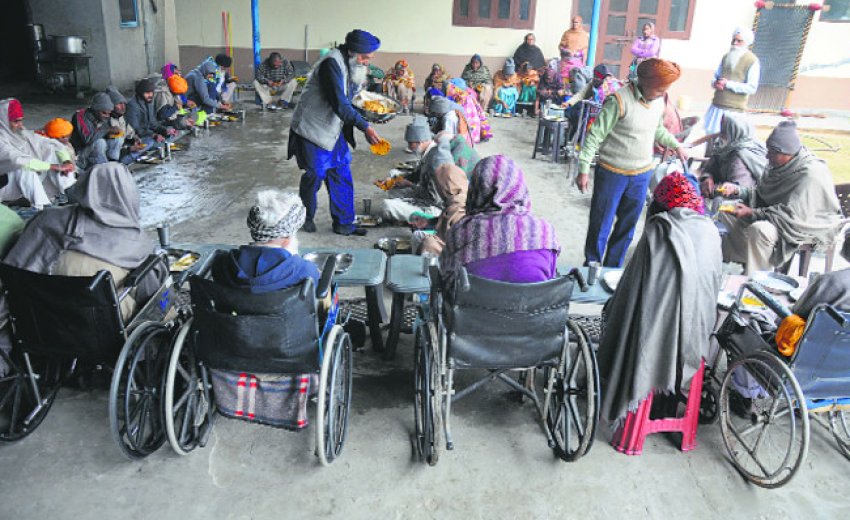By Minna Zutshi
When all doors are shut, there is one that remains open — ready to provide shelter, succor and comfort to the destitute. This is how Dr Naurang Singh Mangat, former professor and scientist, describes the Guru Amar Das Apahaj Ashram. A home for the homeless, the ashram is located near Sarabha village in Ludhiana district in Punjab. It houses 62 inmates, who are provided food, clothing, medicine and shelter for free.
Cut back to the year 2005. A man in his mid-50s cycles across the city daily. He stops by wherever he sees any sick person lying on the roadside. If the illness is severe, he arranges for the sick to be admitted to hospital. In case of less serious sickness, he takes the patient to a doctor for consultation and even provides medicines.
The man seems indefatigable. His untiring energy and determination
are hard to miss. Not many are willing to believe that this unassuming man is a former professor from Punjab
Agricultural University (PAU) and scientist from Morrison Scientific Inc., Calgary, Canada.

For four years, Dr Mangat, the man with the mission of helping the sick and the disabled, continued this service singlehandedly. During these years, the humble bicycle remained his mode of transportation. He would spend money from his own pocket to meet the medical expenses of the poor and the abandoned.
The man who had immigrated to Canada, along with his family in 1996, was now back to live in Ludhiana. The decision was propelled by his desire to help the sick and the disabled lead a life of dignity. In 2009, he started the apahaj ashram – a shelter for the homeless and disabled. For most part of the year, Dr Mangat stays at the ashram which is now run by a trust. He goes to Canada for four-five months to be with his wife and children who are settled there.
“At the ashram, my day begins at 3 am. From 4.30 am to 6 am, it is prayer time. Around 8.30 am, the ashram work starts,” says Dr Mangat.
The ashram has inmates hailing from Punjab, UP, Bihar, West Bengal, Assam, Andhra Pradesh, Nepal, Rajasthan. When they were shifted to the ashram, some of them were in a pitiable state: they had not taken a bath for months together. A few were paralyzed, while others were mentally ill.
The ashram houses 21 mentally ill patients. As many as 15 of them suffer from paralysis. The sevadars help the patients in their routine activities. Langar, prepared by the sevadars, is served to the ashram inmates. “Ours is a self-dependent initiative, though good Samaritans keep donating wheat grains, medicines. We prepare wheat flour in the ashram itself. Vegetables, too, are grown in the ashram. A doctor visits the ashram regularly. A psychiatrist from Ludhiana offers free services every month.”
No one who is homeless has ever been refused admission, says Dr Mangat. “We do not have any space constraint. We have enough space for the poor and homeless who have no family or resources to fall back upon. This home always welcomes them with open arms.”

